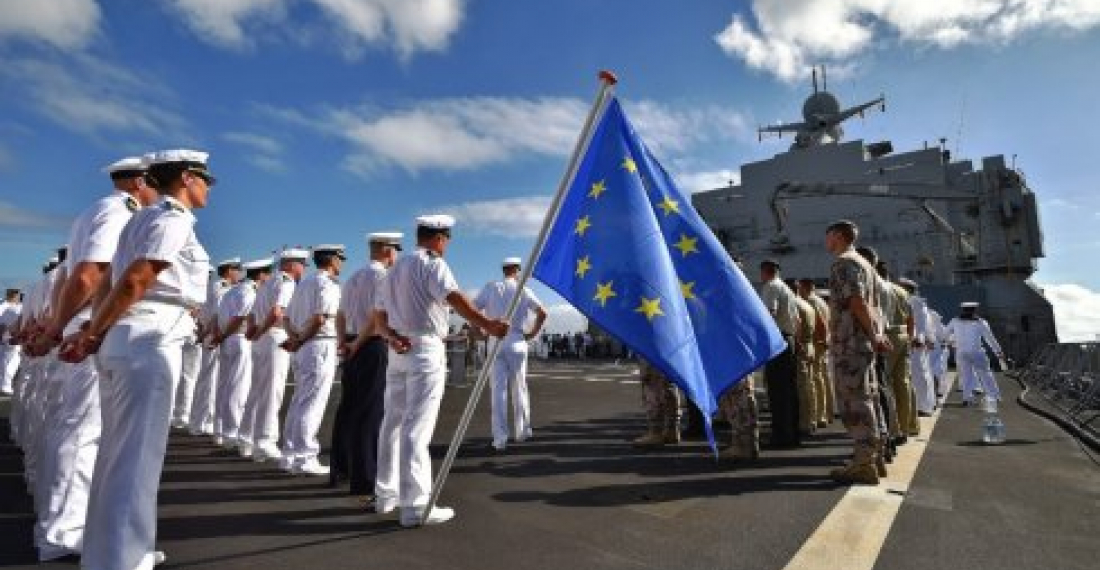There is much to be said in favour of the call for the EU to have a kick-ass capability in the conduct of its foreign policy, but soft power should remain the Union's tool of choice, argues Dennis Sammut
Big international bureaucracies tend to develop their own lexicon of words, supposedly understandable by insiders, but very often quite confusing for the rest of us. The European Union has its fair share of this vocabulary, mostly in French or English, and increasingly in these Brexit days, in German. Terms such as "acquis communitaire" - the body of law that countries must adopt as they proceed on their path to EU membership, or "conditionality" - the strings that the EU attaches to its financial assistance to third countries, are two examples.
A few days ago, the President of the European Commission, Jean-Claude Juncker. coined a new term, in German, "weltpolitikfaehig". The website of the European Commission explained that this means "the desired level of capacity of the EU to play its role at the stage of world politics". More simply, to use that rather vulgar American expression, the EU wants the capacity to kick-ass in the conduct of its foreign policy. "Soft power is not powerful enough. We need more strength in foreign, security and defence matters", Juncker told those gathered at the Munich Security Conference on 17 February.
Specifically, on defence, President Juncker noted the significant progress that had already been achieved during the last year, "more than in the 20 years before". The EU Commission website reported that Juncker wondered why some questioned if the European Union wanted to become too independent when it comes to security and defence policy. "We would like to emancipate ourselves", he was quoted as saying. However, he explained that "there was no intention to emancipate the EU against NATO or against the U.S. The European Treaty stipulated clearly that NATO and the European Union must be complementary."
So, expect to hear "weltpolitikfähig" very often, and you better get used to pronouncing it.
There is much to be said for giving the EU more robust tools with which to conduct foreign policy. Even sceptics are often frustrated when the EU is relegated to the role of bystander as events unfold around it in its neighbourhood, or further afield. The appointment of a High representative for Foreign and Security Policy, and the creation of a European External Action Service went some way to addressing this, but clearly more is needed.
There are however some caveats. In his speech Juncker implied that the EU has exhausted its soft power capabilities, which is why it is now looking at hard power tools. This is far from reality. There is still a huge amount of soft power potential within the European Union which is either not galvanised, or not being used properly. A big part of the problem is the obsession of the Brussels bureaucracy with process, and the failure to focus on achievements. Juncker in his Munich speech hinted at problems with the decision-making process within the EU, but this is only part of the story - the other part is directly related to his areas more directly under his responsibility, namely the need to ensure that the bureaucratic machine is efficient and agile enough, focusing less on ticking boxes and more on real impact.
The second caveat is related to the level of ambition for the end objective, and the cost. A unified European army is a distant and costly endeavour, which is unlikely to be achieved in peacetime, or unless Europe is faced with an existential threat. What is needed in the present circumstances is a military capability to conduct missions, similar to the ones the EU is already engaged with in Africa and elsewhere - but on a larger scale, with faster deployment, and with a sharper sting at the end if necessary. As a short to medium term goal this is achievable.
This notwithstanding, for the European Union, soft power driven by values must remain the tool of choice in the conduct of foreign policy. This approach emerged from Europe's own devastating experience of war, especially in the 20th century. So whilst there is no doubt that more teeth are necessary in the conduct of European diplomacy, these should only be tools of last resort. As Europe embarks on developing its defence capability, it should also examine what it can be doing to make the soft power tools that it has more efficient and more result focused.
source: Dennis Sammut is the Executive Director of LINKS (Dialogue, Analysis and Research)
photo: The Dutch naval ship, Johan de Witt, used by the European Naval Force (EUNAVFOR) as part of the anti-piracy operation Atalanta, seen here at the French military base in Djibouti.






